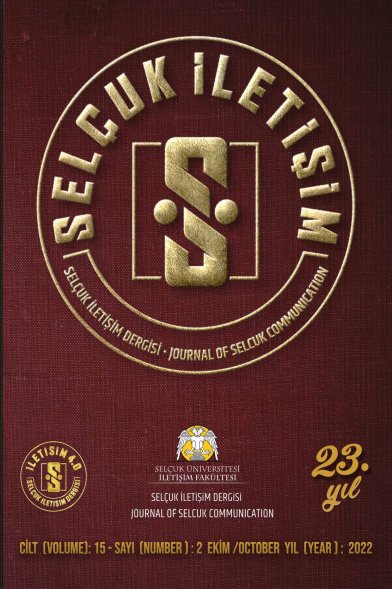Popüler Türk Sinemasında Milli Kimliğin Kolektif Narsisizm ve Aşağılanma Üzerinden Yeniden Üretimi
Neoliberalizm, küreselleşme ve çokkültürlülük gibi kavram ve olguların toplumsal iletişimi bulanıklaştırarak kolektif belleği gevşek bağlarla biçimlendirmesi, milli kimliğin gündelik hayatta özellikle popüler kültür ürünleri aracılığıyla yeniden üretilmesini zorunlu bir hâle getirmektedir. “Cep Herkülü Naim Süleymanoğlu” filmi, Naim Süleymanoğlu’nun “Bulgaristan’da zulüm gören Türklerin sesi” olmak için anavatan Türkiye’ye kaçışı etrafında örülmüş öyküsüyle gündelik hayatta söylemsel olarak yeniden üretilen milliyetçilik ve milli kimlik meselelerini sınırlı da olsa çözümleyebileceğimiz kültürel bir zemin sunmaktadır. Çünkü, kolektif narsisizmi ve aşağılanmayı güçlendiren göç ve asimilasyon olguları, ben-öteki karşıtlığı üzerinden milli kimliği yeniden üreten çileli, ıstıraplı ortak geçmişin ve toplumsal derin yaraların dayanak noktalarıdır. Bu varsayımlardan hareketle, “Cep Herkülü Naim Süleymanoğlu” filmi eleştirel söylem analizi yöntemiyle incelenmiştir. Filmde toplumsal dürtüleri ve kolektif dayanışmayı harekete geçirmek amacıyla kolektif narsisizmin ağırlıklı olarak soy, seçilmişlik ve kahramanlık mitleri, kutsal anavatan, şehitlik, memleket sevgisi, merhamet, azim, meydan okuma, fedakârlık duygu ve değerleriyle; kolektif aşağılanmanın ise din, dil gibi kültürel pratikler ve acı, korku ve zulüm olguları üzerinden güçlendirildiği tespit edilmiştir. Ayrıca filmde, Türk milli kimliğini güçlendirmek amacıyla etnik unsurlara ve milli kültürün yüceltilmesine başvuran muhafazakâr milliyetçiliğin ve etnik bileşenlerin yanı sıra mülki unsura ve cumhuriyetin simgelerine dayanan Kemalist milliyetçiliğin eklektik bir yaklaşımla yeniden üretildiği saptanmıştır.
Reproduction of National Identity in Turkish Cinema Through Collective Narcissism and Humuliation
the collective memory with loose ties. Fort his reason national identity is reproduced in daily life, especially through popular cultural products. The film “The Pocket Hercules Naim Süleymanoğlu” provides a cultural ground where we can analyze the issues of nationalism and national identity, which are reproduced discursively in daily life, with the story of Naim Süleymanoğlu, which is woven around his escape to the homeland of Turkey to become the “voice of the Turks who are persecuted in Bulgaria”. Because phenomena such as migration and assimilation, which strengthen the colllective narcissism and humiliation, are the mainstays of the painful and painful common past and social wounds that reproduce the national identity through the self and the other opposition. Based on these assumptions, the movie “The Pocket Hercules Naim Süleymanoğlu” was analyzed with critical discourse analysis. It has been found that symbols of collective humiliation and narcissism are frequently used in the film to activate social impulses. It has been determined that the sense of collective narcissism is mainly strengthened by myths of ethnic election and heroism, holy homeland, love of the country, patriotic death, patriotism, republican ideology, the feelings and values of compassion, perseverance, challenge, self-sacrifice. On the other hand, it has been revealed that collective humiliation is strengthened through cultural practices such as religion, language, and phenomena of pain, fear and cruelty. Furthermore, it has been determined that conservative nationalism, which uses ethnic elements, and glorification of national culture in order to strengthen Turkish national identity, and Kemalist nationalism, which is based on the territorial element, and the symbols of the republic, as well as ethnic components, are reproduced with an eclectic approach.
___
- Adanır, O. (2003). Sinemada Anlam ve Anlatım. İstanbul: Alfa Kitapevi.
- Akçam, T. (1995). "Hızla Türkleşiyoruz". Birikim Dergisi, 71-72.
- Anderson, B. (1995). Hayali Cemaatler. (İ. Savaşır, Çev.) İstanbul: Metis Yayınları.
- Armstrong, J. A. (2018). Milliyetçilikten Önce Milletler. (E. Türközü, Çev.) İstanbul: İletişim Yayınları.
- Bauman, Z. (2015). Bireyselleşmiş Toplum. (Y. Alogan, Çev.) İstanbul: Ayrıntı Yayınları.
